Plugin House built in Boston to demonstrate potential for use in US backyards
Chinese studio People's Architecture Office is using a pop-up pavilion to show how a prefabricated home designed for China's hutongs could be used by cities in the US to help tackle the housing crisis.
A Plugin House prototype was first installed at Harvard University and then moved to Boston City Hall to engage local residents through a series of in-situ events.
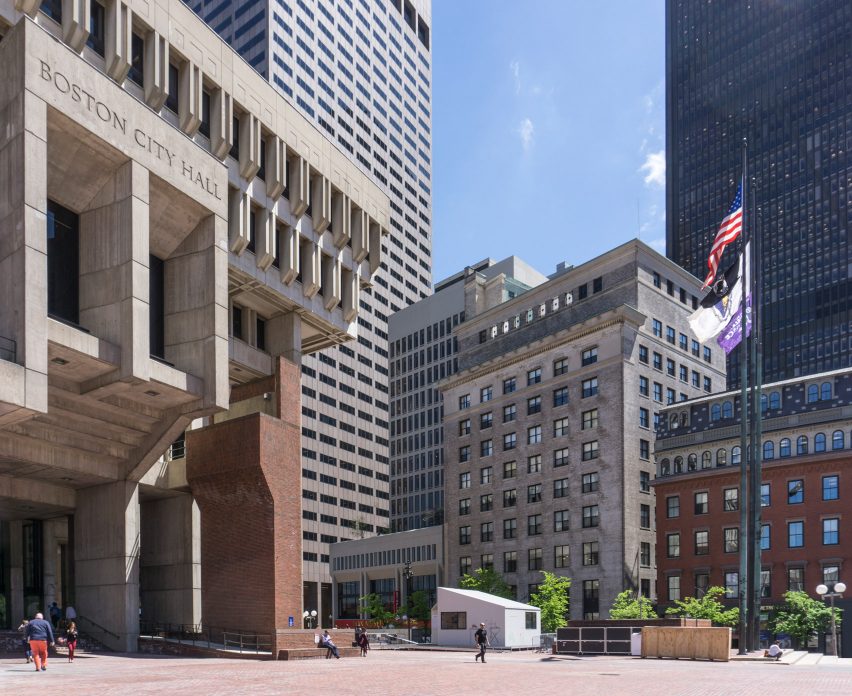
Beijing-based People's Architecture Office co-founder James Shen believes that the Plugin House can be deployed to alleviate the housing crisis in the US by creating extra low-cost living spaces that tap into existing infrastructure in areas within the city's existing boundaries.
"Growing cities everywhere are realising it's unsustainable to continue to expand outwards," explained Shen to Dezeen, "but little land is available in the centre of cities. Accessory Dwelling Units (ADUs) are built on land that is essentially free land. It's basically a strategy for increasing density."
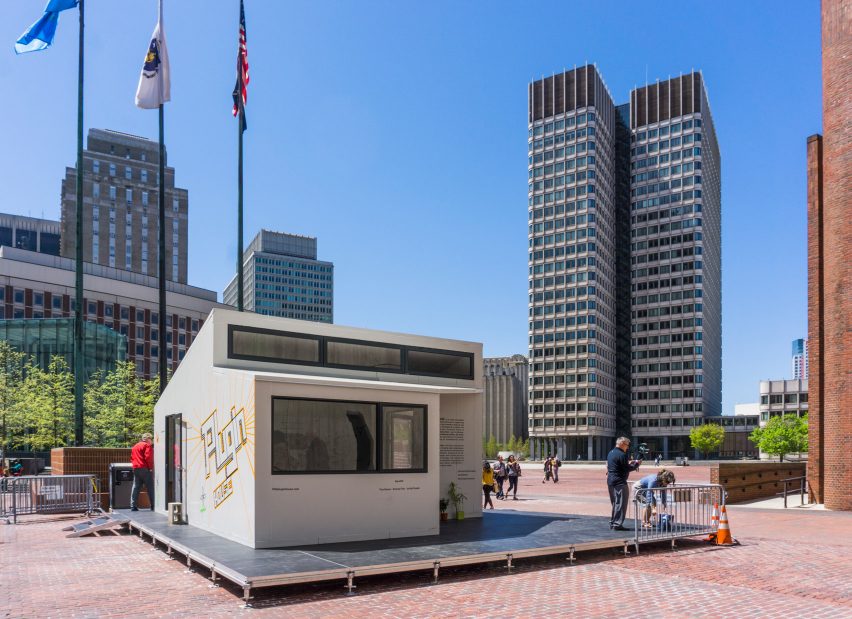
In the US, ADUs can be rented but not sold and must be kept under a certain size. Through the implementation of ADUs, cities can almost double the housing stock in areas where communities and infrastructure are already in place.
By creating small rental units, Shen hopes that the Plugin Houses will be most valuable as a source of extra earnings and space for people of lower income and to the ageing population.
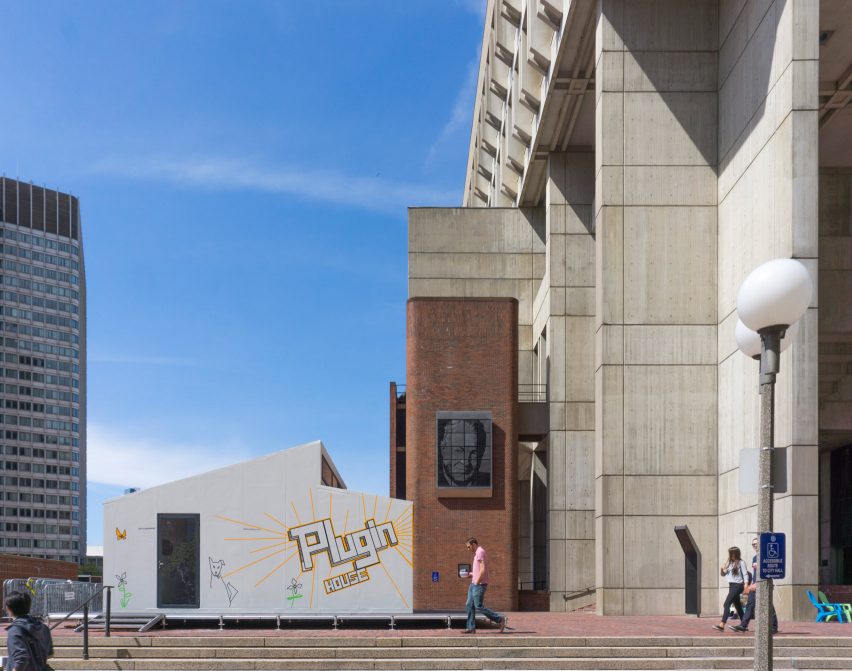
Cities such as Boston, Washington DC, Denver, Austin, Vancouver, Portland, Seattle and all of California have passed new regulations to support ADUs. However, residents of these cities are still not well informed on how these accessory units would look or affect their neighbourhoods.
The main aim of the Plugin pop up in Boston was to help introduce the public to the potential of these units.
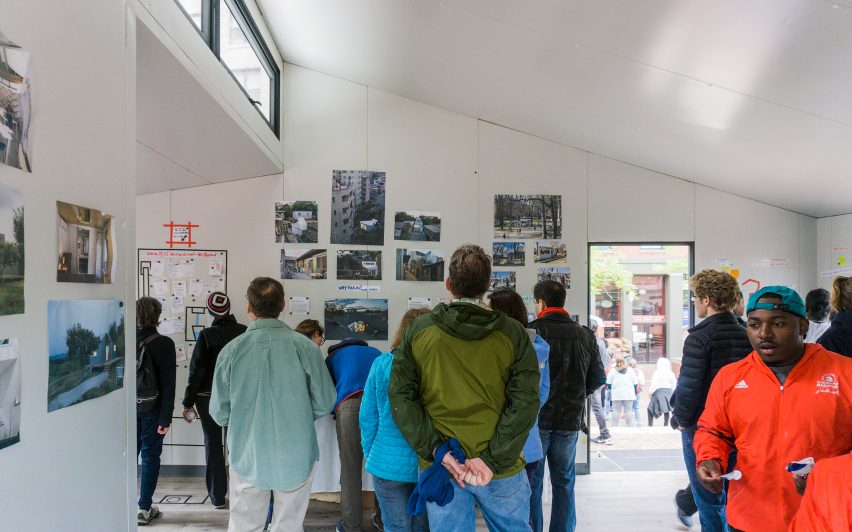
"Governments have a hard time innovating and an even harder time communicating complex issues to the public," said Shen.
"We are much more successful in engaging the public by presenting innovative housing solutions not only through words and images but by allowing the public to walk inside, knock on the walls, ask questions, and even be a part of the construction."
The Plugin House was previously installed at Harvard University, where Shen is a visiting lecturer
The Plugin House was first installed by volunteers at Harvard University, where Shen is a visiting lecturer at the Graduate School of Design. It took these volunteers – who had little design or construction knowledge – only six hours and a single tool to build, demonstrating how easy the Plugin is to erect.
The installation coincided with Harvard Arts First Festival, so various arts and culture events took place in the space, including DJ sets, video installations, dance performances and art exhibitions that all encouraged visitors to come inside and explore the house.
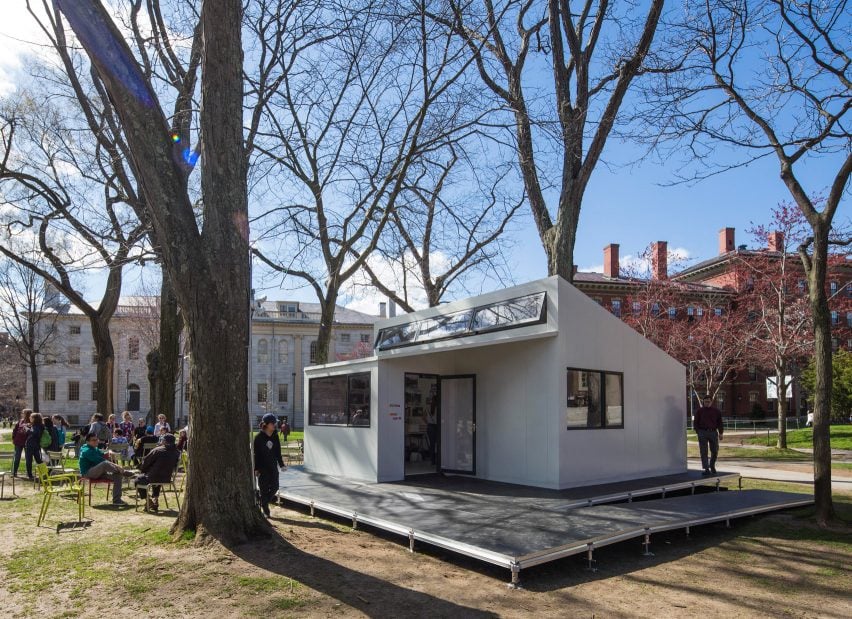
The Plugin was then dismantled and rapidly reinstalled outside Boston City Hall. People's Architecture Office partnered with Boston's Housing Innovation Lab and non-profit Artists for Humanity, who created drawings that illustrated how the interior can be fitted out and organised.
"Boston is one of many cities facing a severe housing crisis, many neighbourhoods are facing intense pressure to gentrify and there is little land in the city to build affordable housing," said Shen.
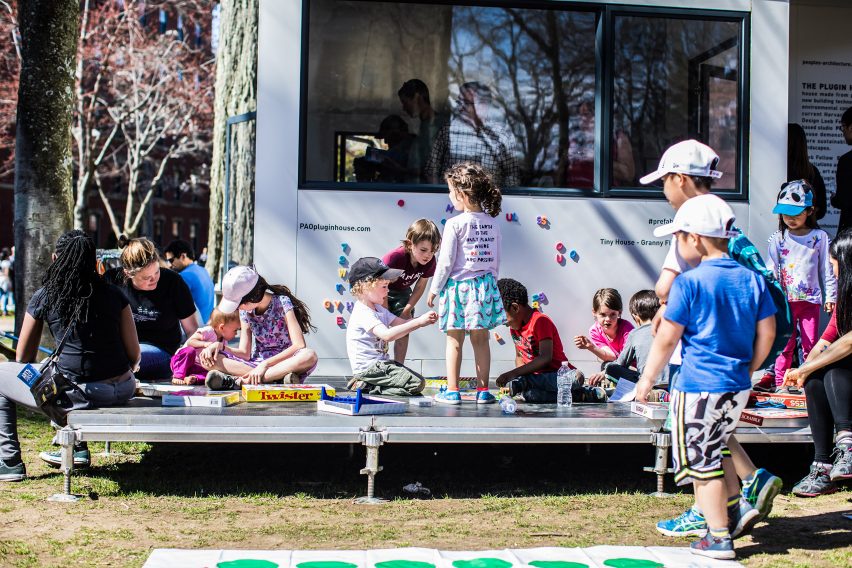
By popping up in the US, Shen hopes that the Plugin House can create public support for practical solutions that can create more affordable housing.
"The city wants to pass new laws that give greater support for ADUs," he added. "But they need public support for that and residents often fear change, especially if it has to do with densifying."
This 360-degree video shows how easy it is to assemble a Plugin House
People's Architecture Office originally launched the Plugin House concept in the Dashilar hutong as part of Beijing Design Week 2014.
The studio is currently in the process of opening a branch in the US and is also setting up independent Plugin House company that will be dedicated to bringing its ADU to market in the US in 2019.
Photography is by People’s Architecture Office, Housing Innovation Lab, Christopher Andrew and Maggie Janik.
Project credits:
Client: Harvard University, Boston's Housing Innovation Lab
Architect: People's Architecture Office
Design principals: He Zhe, James Shen, Zang Feng
Project team: Feng Ziqing, Xu xi, Li Zhenghua, Liang Xiaomei, Xiang Weixing, Kong ming, Zhao Yuemeng
Sponsors: Mayor of Boston’s Housing Innovation Lab, Harvard Office of the Arts, Harvard Loeb Fellowship, Leping Foundation